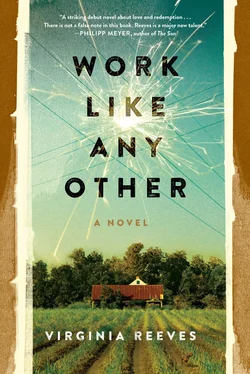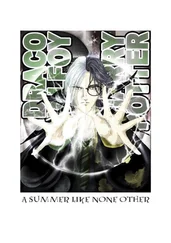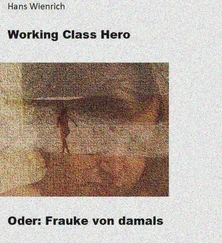Roscoe nodded in thanks.
In cross-examination, Bean fumbled some, and the prosecution made Roscoe out to be a dishonest crook who’d taken advantage of a small-town businessman. Still, Roscoe appreciated Bean’s attempt.
MARIEand Gerald didn’t attend the trial, and they didn’t visit Roscoe in his Montgomery jail cell. Rationally, Roscoe told himself it was a significant trip for them, but in his gut, he knew they were making a choice, and he didn’t understand why. How could Marie not be deeply embedded in everything? Roscoe could see her taking to his defense the way she took to teaching. She was impervious, and she would work until an answer came. He knew she’d do a better job representing him than the State lawyer. And there was that, as well — why the State lawyer? Why not hire an attorney who could actually make something come of this time in the courtroom? They had the money now.
But Marie wasn’t there.
Roscoe felt the haunting of abandonment, as he had after Gerald’s birth. Marie had left him then, in every way but appearance. They had shared a home, yes, but not a bed. They were parents of the same son, but they didn’t raise him together.
In his jail cell, Roscoe thought about their courtship, how quickly they’d become inseparable, intertwined, rooted. They’d courted longer than people thought they should, neither of them in any hurry to change what they’d discovered. They would spend their time in the village dining hall talking over village food, or they would stroll together along the Coosa River, Marie pointing out birds. Roscoe visited Marie’s schoolhouse, and Marie walked out over the dam with Roscoe as her guide. They married two years after they’d met, and they took their vows at a small ceremony on Marie’s father’s land with few in attendance — Marie’s father, Wilson and Moa and their first two children, Roscoe’s foreman, Marie’s closest friend from college. A child didn’t come for two years, though they tried regularly to create one, and Roscoe could see plainly now that those two years before Gerald were their best. They had been given a house in the village, a tiny home just down from the dam, but an immense step up from the single-employee apartments where they’d both been living before. They were able to share a bed, to sleep together every night, and to rise together every morning. They drank coffee and ate eggs and bread and ham before Roscoe walked Marie to school. She always finished work first, so she lingered near the powerhouse at the end of Roscoe’s shift, waiting for his appearance.
They were better in isolation — the two of them away from Marie’s family and the ghosts of Roscoe’s family, no child between them.
In his jail cell with its high, barred windows and stone walls, Roscoe played back his son’s birth, the place where his marriage to Marie shifted like a tree uprooted in a storm, tipped so that its roots spread out over air, rather than ground. Roscoe knew it was not the boy’s fault, that he hadn’t meant to loosen those roots in his flooding and swelling — storms don’t know their cruelty — but still, Roscoe had assigned him blame. The tree that had been his marriage remained, made up of the same components, but it stood at odd angles, its parts misaligned, its growth stalled.
Maybe Roscoe was better with everyone in isolation, one person at a time. Maybe it was always going to be factions of two, one person on the outside circling round, waiting for a chance to break in. Possibly the mistake was simply one of numbers — they should’ve known three wouldn’t work. If there’d been the potential for four or six or eight even — they had dreamed of so many children — then maybe they could’ve managed the odd-numbered days, their investment in the future enough to keep them connected.
Roscoe tried to see a life with his son. The two of them becoming the inseparable ones, intertwined, rooted, Marie looking for a way in.
And he’d had a piece of it — a small intimacy with Gerald. But he was after Marie, ultimately. He’d wanted most to disturb Gerald and Marie’s knitted comfort and steal back his wife. And he had! He’d gone to Marie’s land, and he’d installed the transformers, and he’d run the lines, and he’d electrified the thresher, and he’d fixed the damn farm. He’d righted the damn tree, shoved its roots back in the ground, pushed its branches toward the sky. His marriage had returned, and if it’d put Gerald slightly on the outside, what was the harm? The boy would be grown soon enough anyway, and searching for someone else to complete his pair.
It was Roscoe who was alone in a jail cell, though, far from the land he’d electrified and the wife he’d regained. Gerald was back in his place by his mother’s side. Roscoe knew it.
THEtrial continued, and the prosecution focused on George Haskin. Photos of him from before the accident showed a nose that hadn’t formed right at birth, giving where it should’ve held. The ridge above his eyes stood out like a cliff, his eyebrows hugging it tight. He wore a troubled face, which made his death somehow worse in Roscoe’s mind.
While the jury looked at his photos, the prosecution described him as a kind and decent boy, churchgoing and community minded. He’d lived in the single-worker apartments in the Lock 12 village, moving in about seven years after Roscoe and Marie had moved out. He owned a hound dog, and he was an avid duck hunter. Both George and Roscoe had made their livings off electricity. Like Roscoe, he’d worked as a topper on ridge-pin crews before being assigned to other work. George Haskin was said to have a good singing voice. Though he had no evidence to contradict the claim, Roscoe found this hard to believe. Maybe it was just the photos — a man with that sort of nose couldn’t be a good singer.
Roscoe also believed that George must have been stupid, and that didn’t mix well with singing either. All the beautiful-voiced people Roscoe had known were intelligent, and that made sense to him. Singing seemed like a physical puzzle, a challenge to the mind’s ability to coach and command the body. George Haskin couldn’t have been strong in those areas if he was stupid enough to get himself killed by his own livelihood.
The prosecutor described George Haskin’s body after his death — hands burned beyond recognition, nubs of blackened fingers. His hair had caught fire and burned his whole face and head. The current had made a mess of his veins, great branching lines of red that spread across his skin like roots. The prosecutor hadn’t made that comparison, but it was all Roscoe could see.
Roscoe’s lawyer focused his argument around the farm’s failings and Roscoe’s heroic effort to alter that course. Marie and Gerald’s absence was a crippling liability, though. “I’ve reached out innumerable times,” the lawyer told Roscoe. “I can’t subpoena her because she’s your spouse — and I don’t know that her testimony would help us that much anyway — but she refuses to attend. Is there something I can pass along? Some way I could convince her to sit behind you in the courtroom? It’d make a world of difference with the jury. They need to see your family, Roscoe.”
Roscoe shook his head. He’d tried, too.
“My client was trying to save his farm,” his lawyer said in his closing comments. “He was trying to save his family. He took so little electricity — truly a drop from a lake — and the last thing he wanted or expected was for a man to die. Mr. Haskin’s death is a tragedy. It’s a tragedy for everyone involved. But I ask you to see my client as he is — a deeply burdened man who wanted nothing more than to provide for his wife and son.”
That wife and son were nowhere to be seen, however, and Roscoe was convicted of larceny and manslaughter. He was sentenced to twenty years’ incarceration in a state penitentiary. He would leave for Kilby Prison the following day.
Читать дальше












